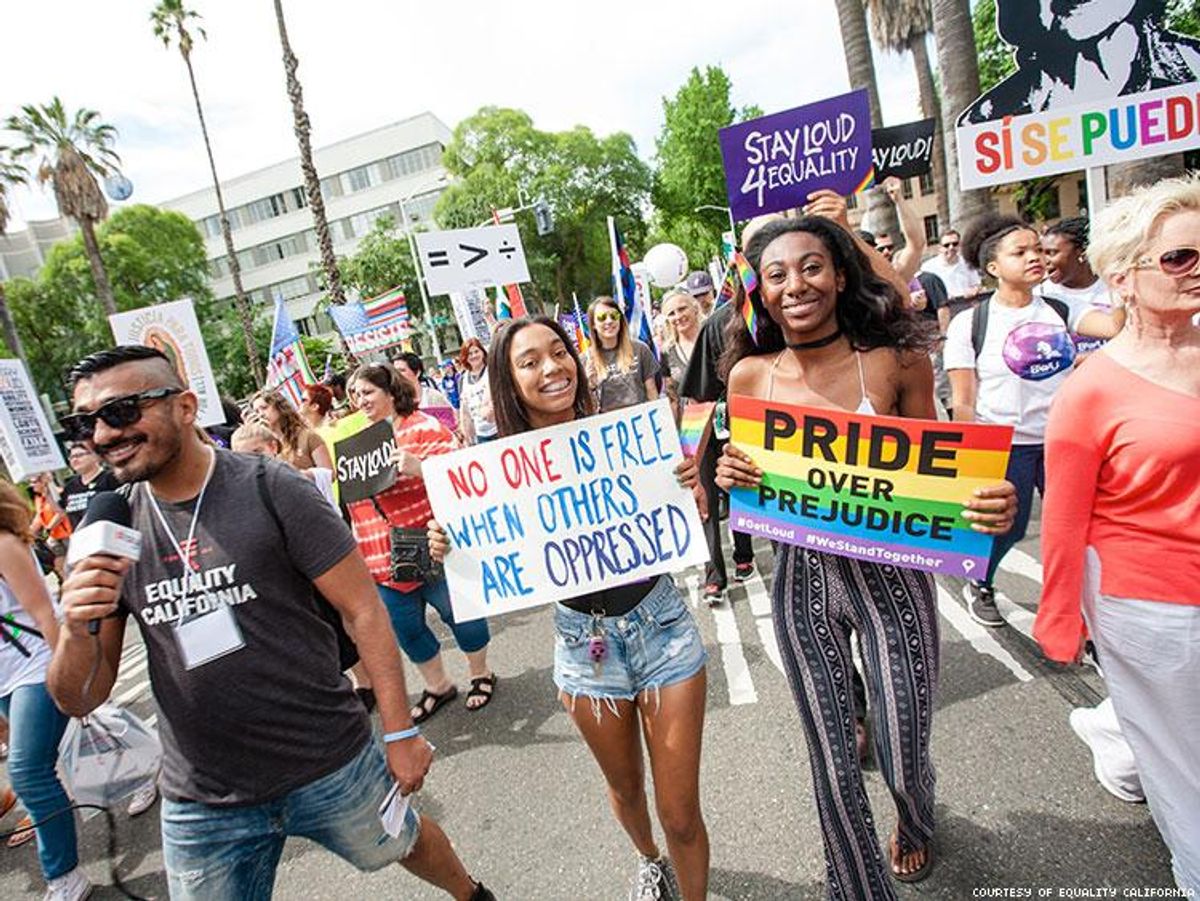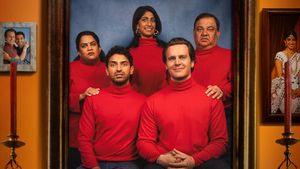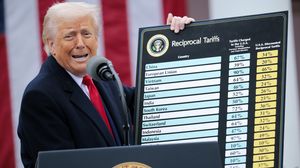All Rights reserved
By continuing to use our site, you agree to our Private Policy and Terms of Use.
This June, Californians have kicked off a month of LGBTQ Pride observances in cities across the state, marking the 48th anniversary of New York's Stonewall Riots. Pride Month is in part a remembrance of courageous acts of protest in New York, Los Angeles, and San Francisco and other cities a half century ago by people who refused to hide or be bullied any longer. But as our community has made progress in its quest for civil rights and social justice, Pride marches in subsequent years took on a tone of celebration as the movement for LGBTQ civil rights marked new and anticipated successes.
Until this year.
For many LGBTQ people across the state and nation, this is not a year to celebrate. This year is meant for acts of resistance to a climate of fear, intolerance, and outright bigotry that has swept much of the nation since last November's election. Marchers are calling on a history of resistance and organizing by California's LGBTQ community that predates Stonewall by more than a decade, including protests in Los Angeles in 1959 at Cooper's Donuts and again in 1967 at the Black Cat Tavern, and in San Francisco in 1966 at Compton's Cafeteria.
Trending stories
Since then, the LGBTQ community has made stunning advancements in civil rights and social justice. But while LGBTQ Californians have the world's strongest nondiscrimination protections and same-sex couples coast to coast now are free to marry, our community still faces stark disparities in health and well-being. LGBTQ people in most of the country still have no protections from discrimination in employment, housing or in public services. Widespread lack of acceptance or outright hostility lead to high rates of depression and substance abuse. LGBTQ youth face suicide rates up to four times higher than their non-LGBTQ peers. Transgender people face epidemic rates of violence.
In addition, LGBTQ Americans now face a laundry list of attacks from the Trump administration, both direct and indirect. The administration has rescinded federal guidelines that protected transgender students, sending a dangerous message to educators across the country that trans youth's safety matters less. The administration has erased LGBTQ people from the 2020 U.S. Census. The administration has proposed billions of dollars in cuts to federal HIV research and treatment programs. The administration continues to attempt to dismantle the Affordable Care Act, which brought health coverage for the first time to many LGBTQ people with preexisting conditions such as HIV. The administration has targeted California's 250,000 LGBTQ undocumented immigrants, along with millions more, for deportation.
LGBTQ people are not alone, of course, in feeling less safe. Donald Trump has attacked immigrants, Muslims, and many other groups during his candidacy and since his inauguration. In fact, many in our community feel doubly under attack because we are members of every community. We are black and Latino, Muslim and Jew, immigrant and native-born, women, and part of every community in between.
That particular strength of the LGBTQ community is California's, as well. Our "#RESISTHate" billboards now going up across the state serve to remind us all of the values that make us Californians in the first place. How LGBTQ people stand up during Pride Month to the currents of hatred flowing across much of the country or how Californians over the next few years resist a generalized national climate of fear can make our state a national example of acceptance and inclusion. Together, these voices can lead the way to a more inclusive and just world by taking action and demanding change.
RICK ZBUR is the executive director of Equality California.
Recommended Stories for You
From our Sponsors
Most Popular
31 Period Films of Lesbians and Bi Women in Love That Will Take You Back
18 of the most batsh*t things N.C. Republican governor candidate Mark Robinson has said
These 15 major companies caved to the far right and stopped DEI programs
Latest Stories
Out and About with Karan Soni


















































































